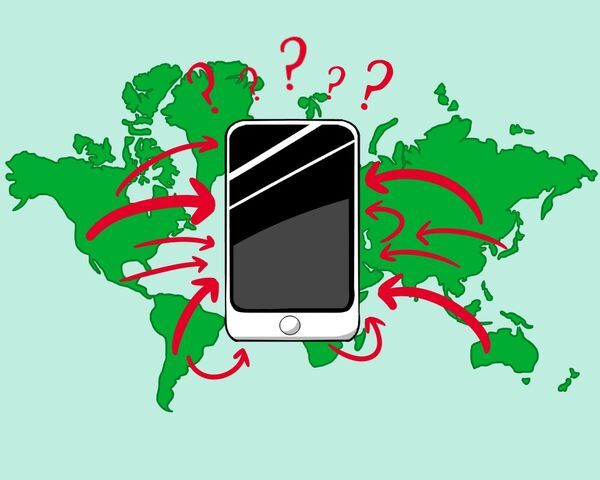Nothing encapsulates the culture of the modern age better than Apple’s iPhone. Limitless technology and information in the palm of every hand connect people from around the globe and streamline everyday tasks. Hailed as the pinnacle of scientific advancement and entrepreneurial success, it is an understatement to call the iPhone an icon of American exceptionalism and the template for what the system can produce.
This rhetoric is very attractive and uplifting, but the digital multitool in our pockets has a sinister history. The criticisms of mobile phones are assertions, usually from the elderly, that it limits genuine communication between humans and turns consumers into mindless drones. But there is not much evidence to support this besides prejudice against the young and progress of any kind. The truly sinister history of the iPhone is not in its uses; it is in its creation.
Apple will proudly label their products as “designed in California,” but they are less likely to boast of the step after design. In 2016, The Washington Postrevealed one of Apple’s prime sources of cobalt for iPhone manufacturing are “artisanal” mines in the Congo, where adults and children dig by hand for a negligible wage.
The cobalt deposits require miners to dig hundreds of feet deep at times. This prompted Apple to verify and map where their resources came from, but the company did not explicitly pledge to abstain from the source until 2017, when Sky News aired footage of the child workers and their living conditions.
The mines in the Congo are not unique either. Apple continues to use materials extracted from unsafe locations in less developed nations, such as Bolivia and Indonesia. In these locations, miners regularly die from accidents and mine-related health complications. Child labor is still being used as well. This is a direct contradiction to Apple’s suppliers code of conduct, which states “all workers in our supply chain deserve a fair and ethical workplace.”
Even after the materials are mined and manufactured, the poor treatment of workers continues. Apple has received a significant amount of labor criticism regarding factory practices in the People’s Republic of China. Often mislabeled as the place iPhone parts are built, the manufacturing plants in China actually assemble the parts into the finished product. The majority of such facilities are owned by the Taiwanese company Foxconn.
Conditions in these assembly plants are also grossly inhumane, as they are in the mines. The factories have dormitories, so workers live and work in the same facility and can be monitored by their employers. Workers have detailed long, stressful hours and poor treatment by managers and supervisors, who often humiliated them for mistakes or exhaustion. Suicide became common at these factories, with 18 recorded suicide attempts resulting in 14 deaths in 2010 at the Longhua facility alone according to Brian Merchant’s novel, “The One Device” in which he documents the conditions of the factories.
As a remedy to increased suicides, Foxconn installed nets outside the building to catch workers who threw themselves from the roof. Workers were also pressured into signing agreements that they would not attempt suicide. When confronted with these numbers, late Apple founder and CEO Steve Jobs responded that suicide rates of these facilities fell within the national average in China and defended the Foxconn facilities as factories, not sweatshops during a 2010 interview.
It would be difficult to ask Americans to boycott smartphones, even given these conditions. So much of our life requires us to have access to the resources the iPhone gives its users. But perhaps more sustainable consumption can be practiced to limit unethical byproducts. With new versions of the device being released every six months to a year, consumers should really consider holding off on upgrading each time.
iPhones can easily last several years and fewer being purchased means fewer materials being mined in unsafe conditions and fewer products being assembled in unhealthy factories. At the very least, we should acknowledge technological achievement comes at a high price, and while it may serve as a champion of American innovation, it continues to be built off the backs of black, brown and Asian workers who do not have the opportunity to share in its success.
– Zach Ienatsch is a journalism senior
Categories:
Don’t upgrade your iPhone unless you have to
April 3, 2018

Illustration by Jada Webb | Staff Illustrator
0
Donate to The University Star
Your donation will support the student journalists of Texas State University. Your contribution will allow us to purchase equipment and cover our annual website hosting costs.
More to Discover





